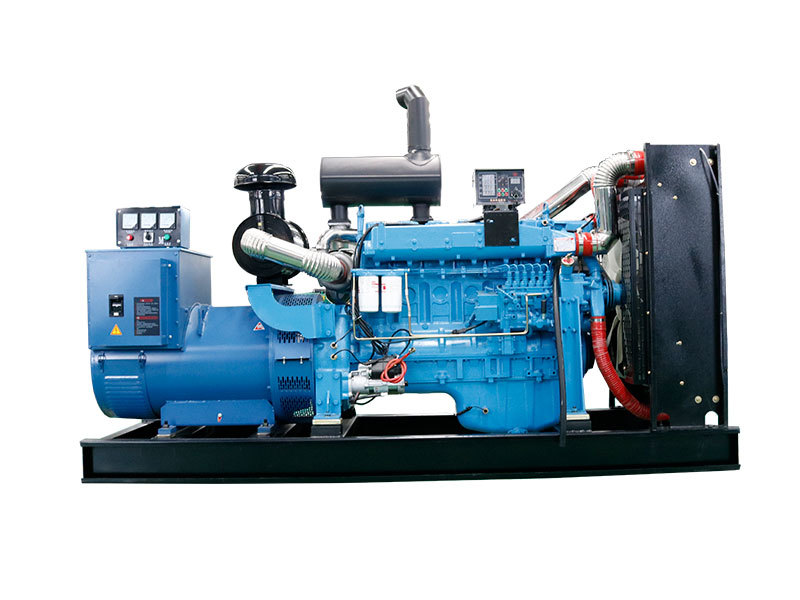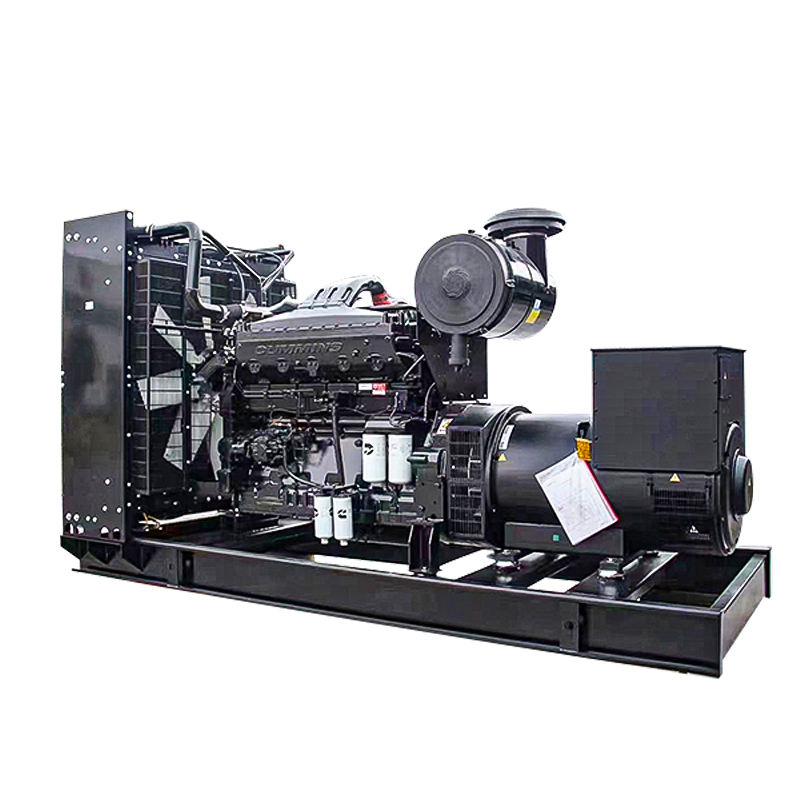Beyond the Engine: How to Choose a Generator Set Manufacturer You Can Trust
In our hyper-connected world, consistent power isn't a luxury; it's the lifeblood of business, safety, and modern life itself. From data centers processing billions of transactions to hospitals powering life-support equipment, the silent hum of a generator set is often the only thing standing between seamless operation and catastrophic failure. But when it comes to securing that power, the decision goes far beyond simply buying a piece of machinery. You're choosing a partner. Have you ever considered what truly separates a good Generator set manufacturer from a great one? It's not just the engine brand or the kVA rating.
Frankly speaking, the market is flooded with options, from global behemoths to regional assemblers. Navigating this landscape can be daunting. The spec sheets might look similar, and the prices can vary wildly. This guide is designed to cut through the noise. We'll explore the critical, often-overlooked factors that define a top-tier manufacturer, helping you make a strategic investment that ensures reliability for years to come. In my experience, the right choice provides not just a product, but peace of mind.
What Truly Defines a Premier Generator Set Manufacturer?
At first glance, a generator set—or "genset"—seems straightforward: an engine connected to an alternator, all managed by a control panel. However, the difference between a unit that fails under pressure and one that performs flawlessly for decades lies in the manufacturer's philosophy and capabilities. It's about a holistic commitment to excellence.
Quality, Compliance, and a Culture of Safety
This is the foundation. A reputable manufacturer doesn't just assemble parts; they engineer a fully integrated system designed to meet rigorous international standards. Look for key certifications:
- ISO 9001: This isn't just a plaque on the wall. It signifies a documented, audited commitment to quality management systems. It means processes are in place for everything from design and development to production and service, ensuring consistency and traceability.
- UL 2200: For the North American market, this is a critical safety standard for stationary engine generator assemblies. A UL 2200 listing means the entire package—not just individual components—has been tested and certified to work together safely, covering mechanical and electrical hazards.
- CE Marking: For products sold in the European Economic Area, the CE mark indicates conformity with health, safety, and environmental protection standards.
To be honest, a manufacturer that invests heavily in these certifications is demonstrating a long-term commitment to safety and reliability, protecting both your investment and your personnel.
Deep Engineering and Design Prowess
Many companies can bolt an engine to an alternator. A true manufacturer, however, possesses a deep well of engineering talent. This is where they distinguish themselves. Their R&D department isn't just a concept; it's an active hub of innovation. They conduct torsional vibration analysis to ensure engine and alternator compatibility, use computational fluid dynamics (CFD) to optimize airflow for cooling, and perform finite element analysis (FEA) to design robust base frames and enclosures that can withstand seismic events or extreme weather.
This engineering depth is what allows them to offer custom power generation solutions. They can tackle complex challenges like paralleling multiple units for a power plant, designing ultra-quiet enclosures for residential areas, or creating mobile units for emergency response teams. They're not just selling a product; they're solving a power problem.
A Transparent and High-Quality Supply Chain
A generator set is only as strong as its weakest component. A premier manufacturer is transparent about the core components they use. They build strong, long-standing relationships with world-class suppliers for the most critical parts:
- Engines: Cummins, Perkins, Caterpillar, MTU, Volvo Penta
- Alternators: Stamford, Leroy-Somer, Marathon Electric
- Controllers: Deep Sea Electronics (DSE), ComAp
They don't cut corners by using generic or unproven components to shave a few dollars off the price. It's worth noting that this commitment to quality components directly translates to higher reliability, better performance, and easier access to service and parts down the line.

Navigating the Types of Generator Sets: A Manufacturer's Perspective
A knowledgeable manufacturer won’t push a single solution for every problem. Instead, they’ll guide you to the right technology for your specific application, budget, and environmental considerations. Let's break down the most common options.
Diesel Generators: The Unquestionable Workhorse
For standby and prime power applications, diesel remains king for a reason. Diesel engines are incredibly robust, fuel-efficient (in terms of power output per unit of fuel), and known for their longevity and low maintenance requirements. They can accept large electrical loads in a single step, making them ideal for critical applications like hospitals, data centers, and large industrial facilities. Modern diesel engines, compliant with EPA Tier 4 Final or EU Stage V emissions standards, are significantly cleaner than their predecessors, making them a viable choice in many environmentally conscious projects.
Natural Gas and Propane Generators: The Cleaner Alternative
Natural gas generators are gaining immense popularity, especially in areas with a reliable gas pipeline infrastructure. The benefits are clear: lower emissions (less particulate matter and NOx), often cheaper fuel, and reduced on-site fuel storage concerns. They are an excellent choice for non-emergency applications, peak shaving, and facilities operating under strict environmental regulations. Propane (LPG) offers similar clean-burning benefits but with the convenience of on-site fuel storage, making it a great alternative to diesel where fuel stability and lower emissions are a priority.
Bi-Fuel and Hybrid Systems: The Future of Power
Interestingly enough, the most forward-thinking manufacturers are pushing the boundaries with innovative systems. Bi-fuel systems, for example, run primarily on natural gas but use a small amount of diesel for ignition, combining the cost savings of gas with the power density of diesel. Hybrid systems might integrate a generator set with battery storage and renewable sources like solar. These sophisticated solutions are designed for maximum efficiency, resiliency, and the lowest possible carbon footprint, showcasing a manufacturer's ability to adapt to the future of energy.
The Critical Role of Customization and Application-Specific Design
One of the biggest mistakes a buyer can make is assuming a standard, off-the-shelf generator set will meet their needs perfectly. Every application has unique demands, and a superior manufacturer thrives on tailoring their products to meet those exact requirements. This is where a comprehensive diesel generator set selection guide, often provided by the manufacturer, becomes invaluable.
Understanding Your True Power Needs
The process starts with a thorough load analysis. It’s not just about the total wattage. A good manufacturer will ask probing questions:
- What is the total load in kVA and kW? Understanding power factor is crucial for sizing the alternator correctly.
- What is the nature of the load? Are you powering sensitive electronics, or large motors with high inrush currents? This affects the generator's transient response.
- What is the duty cycle? Will the generator be for standby (a few hours per year), prime (variable load, unlimited hours), or continuous power (constant load, 24/7)? Each requires a different engine rating and build quality.
Answering these questions ensures you don't overpay for a unit that's too large or, worse, buy a unit that will fail when you need it most.
Tailoring the Solution for Performance and Environment
Once the core requirements are defined, the customization begins. This is where a manufacturer's engineering expertise truly shines. Common customizations include:
- Enclosures: From standard weather-proof canopies to sound-attenuated enclosures that reduce noise to conversational levels, the right housing is critical. For harsh environments like coastal or desert regions, they can offer specialized materials and coatings to prevent corrosion and sand ingress.
- Control Systems: Do you need simple remote start/stop functionality, or a sophisticated paralleling system to run multiple generators in sync? Advanced controllers can provide remote monitoring, data logging, and seamless integration with building management systems.
- Fuel Systems: Standard sub-base fuel tanks might offer 8-12 hours of runtime. For critical facilities, a manufacturer can design and integrate large, external fuel tanks with automated transfer pumps for runtimes measured in days, not hours.
- Mobility: For construction, events, or disaster relief, gensets can be mounted on trailers with all necessary connections, ready for rapid deployment.

The Unsung Hero: After-Sales Support and Service
A generator set is a long-term asset, and the relationship with the manufacturer shouldn't end once the unit is delivered. In fact, many experts agree that the quality of after-sales support is just as important as the quality of the product itself. This is a key area where a premier industrial generator supplier proves their worth.
Warranty, Technical Support, and Genuine Expertise
A strong warranty is a sign of confidence. Read the fine print. Does it cover parts and labor? What is the coverage period for different components? Beyond the warranty, what happens when you have a technical question at 3 AM? A top-tier manufacturer provides 24/7 access to factory-trained technicians who can diagnose problems remotely and dispatch help when needed. This support system is an invaluable insurance policy.
The Critical Importance of Spare Parts Availability
Imagine your critical backup generator is down during an outage, and you discover the necessary replacement filter or sensor is weeks away on a slow boat. It’s a nightmare scenario. A responsible manufacturer maintains a massive, well-organized inventory of genuine spare parts for their machines. They understand that uptime depends on their ability to ship critical components overnight. They ensure that common service items—filters, belts, hoses—are always in stock and that major components are readily available.
Proactive Maintenance and Service Contracts
The best way to handle an emergency is to prevent it from happening. Reputable manufacturers and their certified dealer networks offer comprehensive planned maintenance (PM) contracts. These agreements ensure that your generator set is regularly inspected, tested, and serviced by qualified technicians. They perform load bank testing to verify performance, change fluids and filters on schedule, and identify potential issues before they become catastrophic failures. A PM contract is a small investment that pays huge dividends in reliability and equipment longevity.
Ultimately, choosing a Generator set manufacturer is a decision that echoes for years. It’s a reflection of your organization's commitment to continuity and safety. By looking beyond the price tag and focusing on engineering quality, customization capabilities, and a robust support infrastructure, you're not just buying a machine. You are forging a partnership with a company dedicated to keeping your power on, no matter what.
For more detailed information, please visit our official website:Generator set manufacturer
About the author: David Chen is a Senior Power Systems Engineer with over 20 years of experience designing and deploying critical power infrastructure. He specializes in creating custom, resilient power solutions for data centers, healthcare facilities, and industrial manufacturing clients worldwide. David is passionate about sharing his knowledge to help organizations make informed decisions that ensure operational continuity and safety. ---





